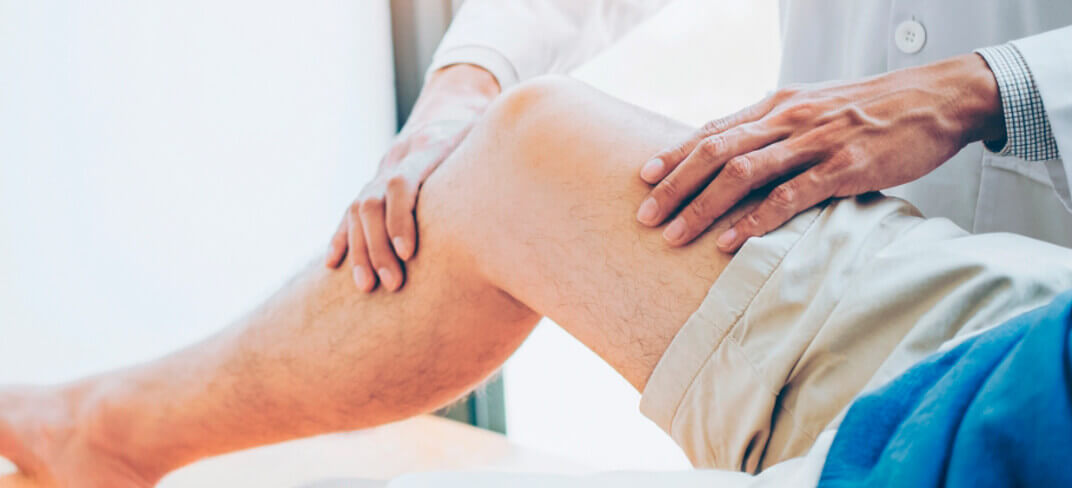Hip or Knee Replacement Surgery: How Long Does Recovering Take?

In recent years, advancements in hip and knee prosthetic surgery have significantly reduced recovery times. However, the duration of rehabilitation varies from person to person and depends on several factors, including the type of surgery and the prosthesis implanted.
In general, many daily activities can be resumed within a few weeks, while full recovery may take from several months up to a year. To optimize results, it is essential to carefully follow the instructions of the specialist and medical team, as well as undergo targeted physical therapy to regain strength and mobility.
Let’s explore the most common questions regarding recovery times after hip and knee prosthesis surgery.
What Are Hip and Knee Prostheses?
Joint wear, trauma, or certain conditions can compromise the function of the hip and knee, making prosthetic replacement necessary. The main types of surgery include:
- Partial knee prosthesis.
- Total hip prosthesis.
- Total knee prosthesis.
These surgeries help reduce pain and improve quality of life, allowing patients to walk and perform other daily activities without limitations. The introduction of advanced surgical techniques, such as minimally invasive and robotic surgery, has further accelerated recovery and improved post-operative outcomes.
How Long Will I Stay in the Hospital After Hip or Knee Prosthesis Surgery?
The length of hospital stay varies depending on several factors, including age, overall health, the presence of other conditions, and the complexity of the surgery. Typically, hospitalization lasts from one to three days, but in some cases, a longer stay may be required.
Before discharge, the medical team will ensure that the pain is under control and that the patient can perform essential activities, such as getting out of bed and going to the bathroom safely. Instructions for physical therapy and rehabilitation, essential for full recovery, will also be provided.
When Can I Walk After Hip or Knee Replacement Surgery?
In many cases, it is possible to get out of bed and take the first steps on the same day of surgery or the following day. Early movement is essential to stimulate blood circulation and promote recovery. Initially, the use of a walking aid, such as crutches or a walker, may be necessary, but as rehabilitation progresses, patients can regain autonomy in their movements.
How Much Pain Will I Feel After Hip or Knee Prosthesis Surgery?
After surgery, some pain is normal, but thanks to advancements in surgical techniques and pain management protocols, in most cases, it is not excessive. The doctor may prescribe pain-relieving medications, which may include acetaminophen, ibuprofen, naproxen, or other personalized treatments.
It is important to always follow the doctor's instructions before taking any medication and report any specific discomforts for proper pain control.
Tips for Recovery at Home After Hip or Knee Prosthesis Surgery
Optimal recovery requires time and patience. It is essential not to overstrain movements in the first weeks to avoid complications. If possible, ask a family member or friend to assist with more demanding activities.
Here are some practical tips to facilitate recovery:
- Limit the use of stairs.
- Do not drive until you have been cleared by the specialist.
- Follow the exercise program prescribed by the physical therapy team to aid mobility recovery.
- Remove obstacles on the floor, such as rugs and objects that may increase the risk of falls.
- Care for the wound by following the instructions provided at discharge.
If you have any doubts or notice anything unusual during recovery, always contact the doctor or the healthcare team that followed your surgery.
When Can I Return to Work After Hip or Knee Prosthesis Surgery?
The time needed to return to work varies based on several factors, including the type of surgery, general health conditions, and the nature of the job.
- Office or sedentary jobs: return may occur in 4-6 weeks, always under the specialist's guidance.
- Jobs requiring physical effort: it may take 3-6 months before returning to work safely.
It is essential to consult the orthopedic surgeon to determine the most appropriate time for returning to work and to evaluate any necessary temporary adjustments.
Physical Therapy After Hip or Knee Replacement
Physical therapy is a key element in the recovery process. Following a rehabilitation program helps improve the strength and flexibility of the joint, reduce pain, and gradually resume normal activities.
Typically, rehabilitation lasts several months, but the duration may vary depending on the individual’s response to treatment. Some patients may require longer sessions to optimize recovery.
Adhering to the rehabilitation plan set by the medical team is essential to achieve the best results and return to an active life as quickly as possible.
Physical Activity After Hip or Knee Prosthesis Surgery
Gradually resuming physical activity is crucial to aid recovery and preserve the prosthesis's lifespan. Before returning to any form of exercise, it is important to consult the orthopedic surgeon or physical therapist, who will indicate the safest times and methods.
In general, low-impact activities are recommended to help maintain muscle tone and mobility without overloading the joint:
- Cycling.
- Doubles tennis.
- Golf.
- Swimming.
- Walking.
On the other hand, high-impact sports should be avoided as they may increase the risk of premature wear of the prosthesis or injuries:
- Basketball.
- Jogging.
- Running.
- Singles tennis.
- Skiing.
Following the specialists’ advice and choosing appropriate activities will help maintain the prosthesis in good condition and enable you to lead an active lifestyle without risks.